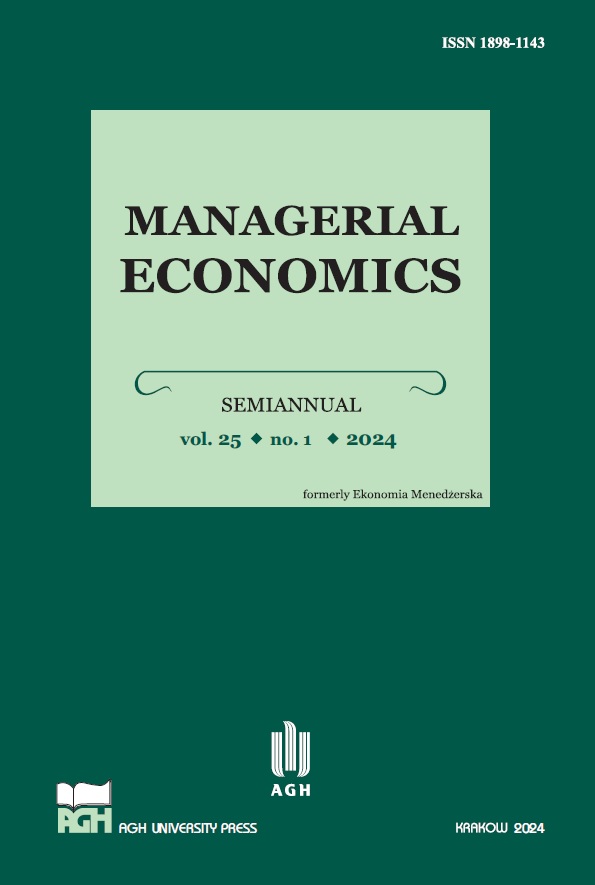Spillovers between European markets
DOI:
https://doi.org/10.7494/manage.2022.23.2.111Abstract
Financial integration has been proven to benefit European economies. However, it may obstruct diversification attempts, and so attracts the attention of investors and researchers. The aim of this paper is to analyze changes in spillovers between European markets, the European Index, and the World Index, over a period of two decades (2000–2021), with regard to the level of development. Mature markets have higher spillovers than emerging and frontier ones. The main finding is that non-developed markets’ spillover levels in tranquil periods did not substantially increase in the last two decades, despite ongoing integration with developed European markets. However, spillover rises in time of global or regional crisis (e.g. Great Financial Crisis, Eurozone Debt Crisis, COVID-19 pandemic) for all markets, regardless of economic development, which can undermine diversification attempts just when they are most needed. Afterwards, the transmission of shocks falls back to the pre-crisis level, with the exception of the spillover between Eurozone markets and European Index, which remained very high even after the end of the particular crisis.
Downloads
Downloads
Published
Issue
Section
License
Download, sign, scan and attach copyright statement form.

